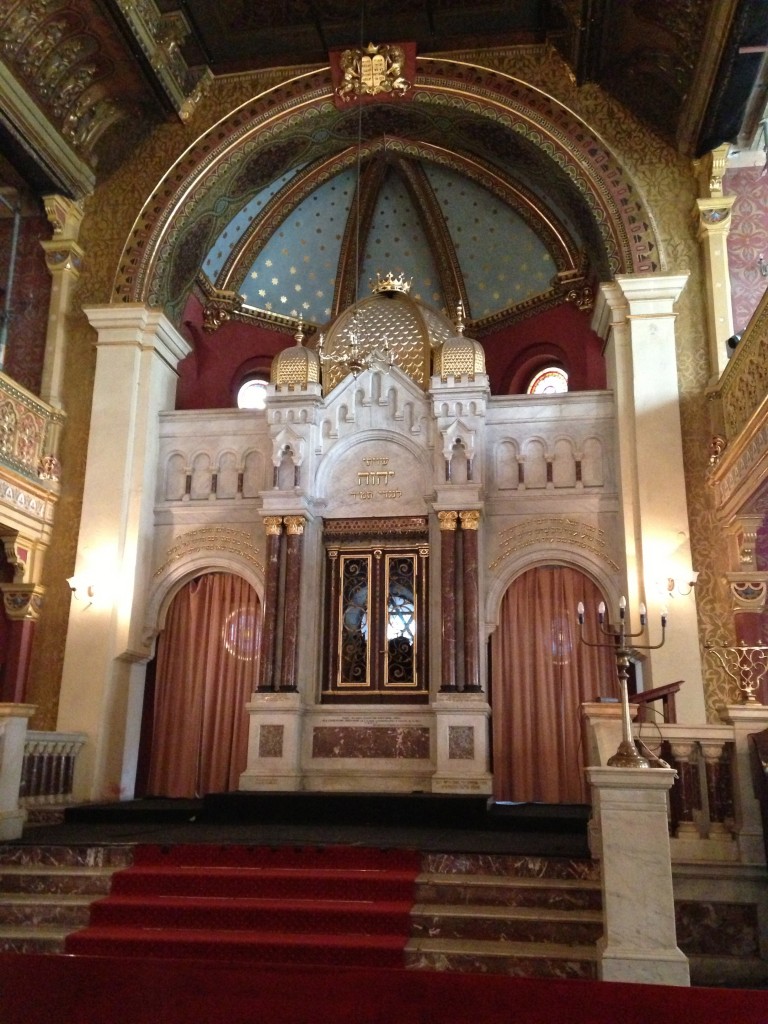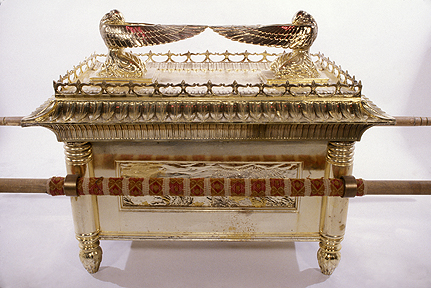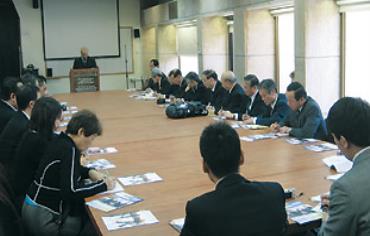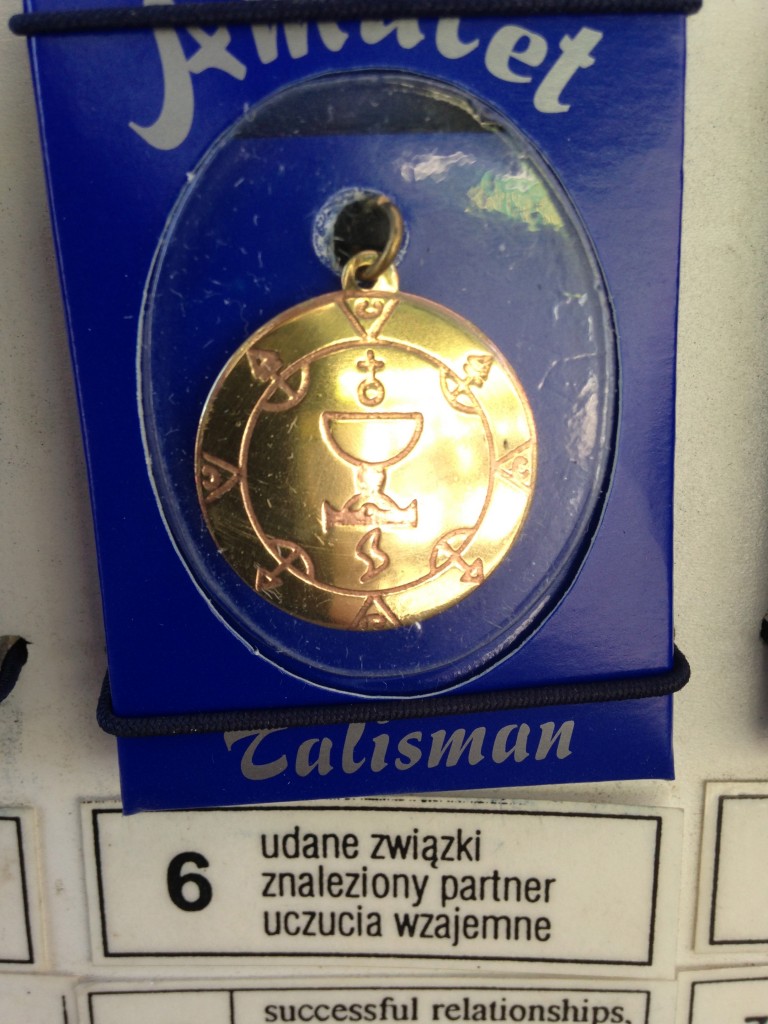
The colourful old synagogue of Krakow, now serving as tourist sight. Only 200 Jews now live in the city, though before the war there was a thriving community of over 60,000.
My summer vacation this year has brought me to the charming town of Krakow, in southern Poland, where the castle, churches and old part of the city offer European culture at its finest. One of the prime tourist sights is the former Jewish quarter, near which stands the factory where Oskar Schindler famously compiled his list. Auschwitz is just 40 miles away.
As it happens, my maternal grandmother was a Czech Jew who died in the Holocaust, though for most of my life I was unaware of it. Only after the death of my mother did I find out, for she had kept it secret from her children throughout her life. Later I discovered that this was common amongst Holocaust survivors, in order to protect their offspring.
It was in Japan, oddly, that I first learnt the truth about my background, through a chance meeting with a Czech musician in Kanazawa. It led me to trace my grandmother to the camp of Terezin, from where she was sent to Lvov and shot. Her husband, a high-court judge, had already died of natural causes, and my mother managed to escape to the West on a false passport via the south of France.

Model of the Ark of the Covenant. Many have noted its similarity to the mikoshi (portable palanquin) used to transport the kami at Japanese festivals.
Though I spent three years in the Middle East (Bahrain and Kuwait), I had never learnt much about Judaism. Now however, wandering around the old Jewish area of Krakow, the similarities with Shinto come to mind, particularly how closely the two ‘world religions’ are identified with one particular race. The subject was something I’d thought about before through reading such books as The Jews and the Japanese by Ben-Ami Shillony, professor of Japanese history, which notes the common characteristics of hard work, cleanliness and sense of the collective which led them to become ‘successful outsiders’.
Despite the obvious difference with Judaism and its emphasis on morality and monotheism, Shinto shares a vital characteristic in the notion of a ‘chosen people’ for whom their land was specially intended. Commentators have suggested this leads to insularity and a tendency to see the world in terms of us and them. As a result, race, religion and homeland are all closely bound up with the sense of identity.
There are those who go further, however, and claim there are actual historical links between Judaism and Shinto. The theory supposes that one of the lost tribes of Israel made its way along the Silk Road and entered Japan in the early centuries, leaving their mark on the indigenous faith. It’s not such a cranky idea as it might appear, since Jewish settlers are known to have existed in China from early times. And arguments have been made for Japan’s influential Hata clan having Middle East origins.
For those interested in the remarkable similarities between Jewish and Japanese culture, the academic Kubo Arimasa has compiled a list at the following site. They include linguistic oddities, such as the 500 vocabulary items which closely resemble the other language: http://www.biblemysteries.com/library/tribesjapan.htm
For those who prefer to watch a video, there’s a three-part truncated Japanese television programme with subtitles that examines some of the research being done into possible historical links. Even if you don’t find the arguments persuasive, and some are clearly speculative or coincidental, there are fascinating questions raised by people willing to put their reputations at stake. Take a look for yourself:
https://www.youtube.com/watch?v=yhlkuGwEecY
https://www.youtube.com/watch?v=hw59ryraJ90
https://www.youtube.com/watch?v=Pt5oHPNuLh0
*********************************
The following article comes from the Jerusalem Post in 2010 (click here for the original).
At Hebrew University, 26 Shinto priests from Japan conduct interfaith dialogue.
Though a polytheistic religion such as Shintoism, and the world’s oldest monotheistic religion – Judaism – seem worlds apart, followers of the two seem to think there is common ground. To that end, 26 Shinto priests from Nagoya, Japan, met last Thursday at the Hebrew University of Jerusalem to conduct an interfaith dialogue with Israeli academics. Among the academics were Prof. Ben-Ami Shilloni of the Department of East Asian Studies, who discussed similarities between Jewish and Shinto beliefs.

Jewish scholars meet with Shinto delegates from Atsuta Jinja for discussions at Israel's Hebrew University of Jerusalem in 2010
According to Shilloni, followers of Shintoism, which believes in multiple gods, seek interfaith dialogues in an effort to get past religious barriers that are, in their eyes, the basis for much of the world’s conflicts. Shintoism, Japan’s “natural and oldest religion,” is a pacifistic faith that accepts other beliefs.
The delegation comes from Nagoya’s Atsuta Shrine, traditionally believed to have been established during the reign of Emperor Keiko (71-130 CE). The 200,000 square meter shrine complex draws more than 9 million visitors a year.
At the meeting, Shilloni read the verse from Isaiah in Japanese, “They shall beat their swords into plowshares, and their spears into pruning-hooks; nation shall not lift up sword against nation, neither shall they learn war any more.”
Shilloni elaborated, “Though this was prophesized by Isaiah 2,600 years ago, Japan has been blessed with peace, while the Jews have yet to be.” According to Shilloni, the followers of Shintoism have a very positive view of Judaism, and see it as the mother of Western religions, and thus holier than other monotheistic faiths.

Enmusubi Jewish-style – an amulet for successful relationships on sale in the Jewish quarter of Krakow
Bahij Monsour, head of the Foreign Ministry’s religious department, said this trip was initiated by the Shinto priests, who approached the Israeli ambassador in Tokyo . Shinto priests last visited here about 10 years ago, when they met with then-Sephardic Chief Rabbi Eliyahu Bakshi-Doron. The current delegation, here for just five days, did not meet with either chief rabbi. They did, however, visit Yad Vashem.
According to Shilloni, the dialogues aid in portraying Shintoism as a less primitive religion than is believed by most of the monotheistic world, and aim to show the common ground shared by Shintoism and other faiths. Israel also has an interest in interfaith dialogues, as they contribute to Israel’s and Judaism’s image as open and accepting, he said.
“It is much easier for us to conduct interfaith discussions with Shinto than with Christianity or Islam, since the latter two reject Judaism in favor of their own faiths, while Shintoism accepts Judaism as it is,” Shilloni said last week.
Though the followers of Shinto embrace all faiths, not all faiths embrace them. This, suggests Shilloni, may be the reason priests did not meet with any Christian or Muslim representatives during their visit.
While Christianity and Islam classify people as either believers or nonbelievers, the followers of Shintoism have no problem accepting other religions and practices, and one can be a perfect Shintoist while simultaneously serving other gods or participating in other types of worship. Testimony to this, said Shilloni, are the Christian wedding ceremonies most Japanese couples undergo, despite their adherence to Shintoism.

Fascinating!
Interesting post! The Japanese-Jewish common ancestry theories (Nichiyu dosoron) are particularly popular among Japanese Christians, and I know that some Japanese independent Christian churches (e.g., Makuya) have actively integrated Jewish practices and symbols into their worship, combining it with Zionist ideology. In fact, I wrote about this topic previously (see for instance http://www.iias.nl/sites/default/files/IIAS_NL54_31.pdf). I also recommend Goodman and Miyazawa’s fascinating book on the topic of Japanese varieties of anti- and philo-Semitism, entitled ‘Jews in the Japanese Mind’. Personally, I don’t think the arguments put forward by representatives of common ancestry theories are very convincing, but they are worth studying if only to understand more about the ideological diversity of modern Japan. As for the Shinto-Judaism interfaith dialogue: that is an interesting (and, as far as I know, unprecedented) development indeed, especially considering the presence of anti-monotheistic and even anti-Semitic beliefs in Shinto circles. I do wonder what their motivations for organising this event were, and who took the initiative.
Speaking of Polytheism vs. Monotheism in Judaism, I’d HIGHLY recommend the following book:
https://en.m.wikipedia.org/wiki/The_Hebrew_Goddess
Personally, I was raised Jewish, but have always been in my innermost heart an Eclectic Pagan, who just so happens to have other ethnicities in my heritage, including some Native American!!
Good day, and thanks for writing in with that suggestion… Funnily enough I had a Jewish mother but was always been more of an Eclectic Pagan who was drawn to Wicca.
…ALSO…
http://home.earthlink.net/~ecorebbe/id15.html,
http://www.amazon.com/Magickal-Judaism-Connecting-Jewish-Practice/dp/0806525762,
https://en.m.wikipedia.org/wiki/Hinduism_and_Judaism,
…&…
https://en.m.wikipedia.org/wiki/Jewish_Buddhist!!
You’re most welcome!! ;)
…Also, since we’re talking about nature-based spirituality
& more mainstream religions, in particular Judaism, well…
http://home.earthlink.net/~ecorebbe/id15.html